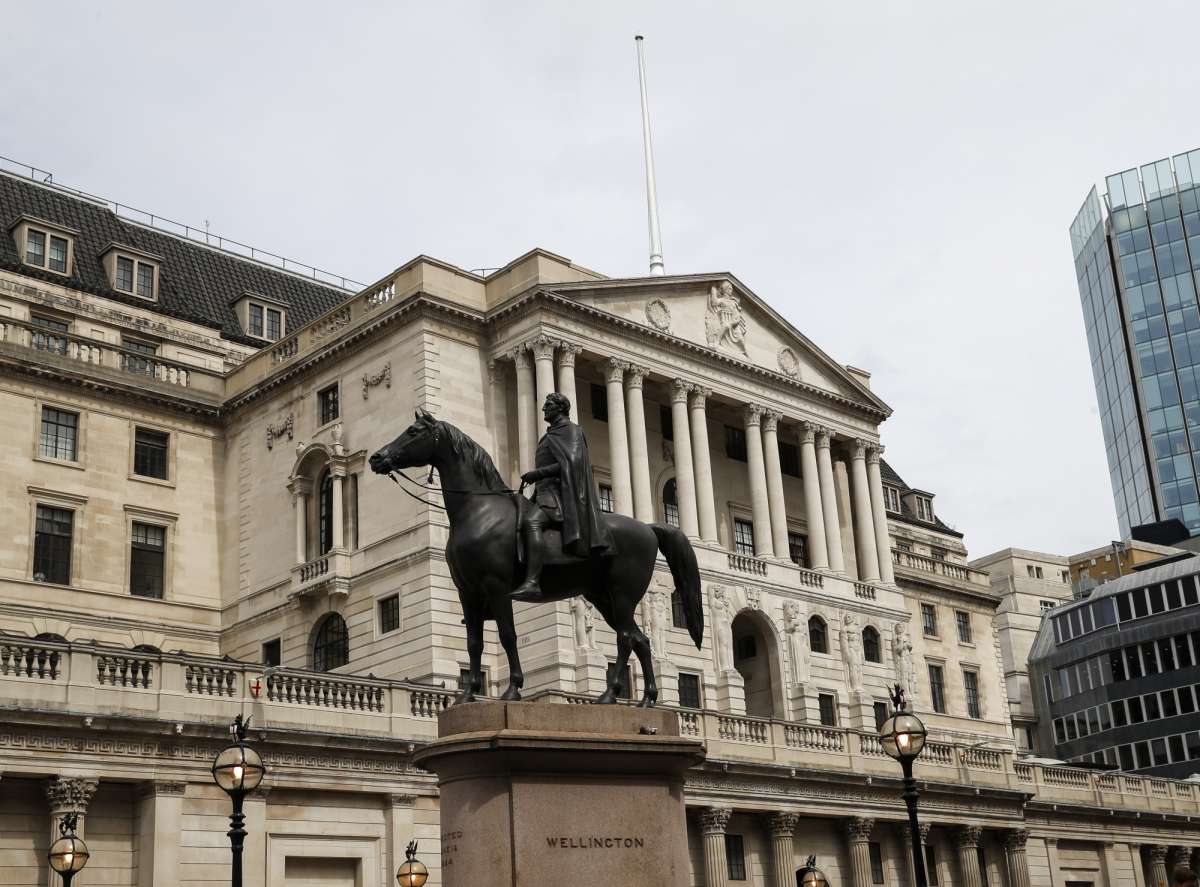Expand the types of collateral it accepts in its existing Sterling Monetary Framework to include index-linked gilts and corporate bonds…reports Asian Lite News
The Bank of England stepped up its support for the UK bond market, aiming to prevent a rout in a $1 trillion part used by the pensions industry from spreading.
The move is designed to bring an orderly finish to emergency purchases at the end of this week and to provide longer-term support for a wider range of securities in the coming weeks.
The measures may give a boost to corporate credit, which has seen demand plummet along with other sterling-denominated assets since the Prime Minister Liz Truss’s government set out a series of tax cuts that spooked investors.
“The measure itself will be positive near term,” said Bob Stoutjesdijk, a fund manager at Robeco Institutional Asset Management.
UK bonds were initially steady after the announcement, before edging lower. The 30-year yield was six basis points higher at 4.45% at 8:55 a.m. London. It surged past 5% for the first time since 2002 after investors took fright at the prospect of higher supply and higher interest rates following the new government’s mini budget last month.
The measures stem from the BOE’s concerns that pension funds following so-called liability-driven investment strategies, or LDIs, were under pressure to liquidate £50 billion of long-term bonds in the last week of September, four times the usual daily average.
The BOE said it will:
Double the size of its auctions to purchase long-dated UK government bonds to £10 billion a day until Oct. 14, when the BOE plans to close that program as previously announced
Launch a Temporary Expanded Collateral Repo Facility, or TECRF, that will run beyond the end of this week until Nov. 10. It’s purpose is to enable banks to ease pressures in LDI funds through liquidity insurance operations.
Expand the types of collateral it accepts in its existing Sterling Monetary Framework to include index-linked gilts and corporate bonds.
Regular repo-related operations also remain available to help
Together, the measures are aimed at ensuring that the LDI funds that need to unwind positions have the liquidity in the market to act by the end of this week. They also provide a broader assurance that the BOE stands ready to keep the market working even as investors make a dramatic shift in their valuation of a wide range of UK assets.
So far, investors haven’t taken up as much of the support as the BOE has offered. In the eight auctions to date, the BOE bought just £4.6 billion of bonds, about 12% of the £40 billion capacity of the program.
Monday’s move also raises questions whether the BOE will be able to move ahead with separate plans to start selling off some of the assets it built up over the past decade under the Quantitative Easing program.
Those moves, due to begin on Oct. 3, so far have been delayed until the end of October. But it’s not certain how the BOE can both support the LDI market through emergency purchases while also selling bonds in regular auctions.
“To keep the long-end gilts more or less in check, they will probably have to let go this idea of actively selling of gilts,” said Stoutjesdijk from Robeco.
The measures set out on Monday broaden the emergency program the BOE announced on Sept. 28 to prevent difficulties in LDI funds from infecting the entire financial system.
In a letter to the chairman of the Treasury committee last week, BOE Deputy Governor Jon Cunliffe said the institution had no choice but to intervene to prevent fund managers dumping £50 billion of gilts and triggering a market crash.
“Clearly the BOE is trying to find more targeted ways to support LDI funds’ liquidity,” said Antoine Bouvet, senior rates strategist at ING Groep NV. “After moving to prevent a further jump in long-end gilts, they now intend to broaden their availability to funding (probably to allow them to meet collateral/margin calls).”
The BOE said it will continue to work with authorities and regulators to “ensure that the LDI industry operates on a more resilient basis in future.”
ALSO READ-Kerry lauds UAE’s role in climate action

